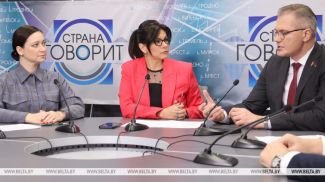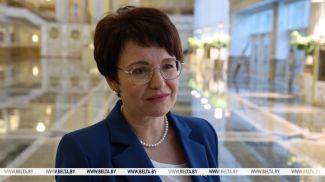MINSK, 10 February (BelTA) - Experts of the European Commission and the European Nuclear Safety Regulators Group (ENSREG) accomplished all the tasks during their visit to the site of Belarusian nuclear power plant (BelNPP), Head of the expert group, Director General of Finland's Radiation and Nuclear Safety Authority (STUK) Petteri Tiippana told the media, BelTA learned from the press service of the Belarusian Energy Ministry.
The experts worked at the BelNPP site on 9-10 February as part of a peer review of the national plan of action following the results of stress tests conducted at the plant.
“All the documents we requested were provided, and we received answers to the questions we were interested in. Access to all BelNPP sites and facilities that we needed was granted,” said the head of the expert group.
He explained that after the completion of the visit to the BelNPP, the experts will begin working on a draft preliminary report. “We will submit this document to the European regulator, in partnership with which the project is implemented, and then bring the report to the Belarusian side. We believe the draft preliminary report will be ready in March,” he said.
The group of experts consisted of nine people. These were representatives of Austria, Belgium, the UK, Hungary, Germany, Lithuania, Ukraine, and Finland.
Belarus has voluntarily conducted stress tests of the BelNPP in 2016-2018 according to the EU methodology. They assessed the presence of “safety reserves” over the requirements established by national legislation. Stress test criteria included testing the reliability of the nuclear plant in case of natural disasters, particularly earthquakes and floods, as well as various man-made accidents. Risks associated with the human factor were analyzed as well. As a result, no safety deficits were identified at the nuclear power plant.
Based on the results of the stress tests, the national regulator, Gosatomnadzor, prepared a national plan of action, which summarized both the recommendations of the national expert review and those of the European peer review. The document contains 23 items with implementation deadlines in the period from 2019 to 2025. Some of the recommendations have already been implemented, including those related to additional safety systems and equipment.
Photos courtesy of Belarus' Energy Ministry












